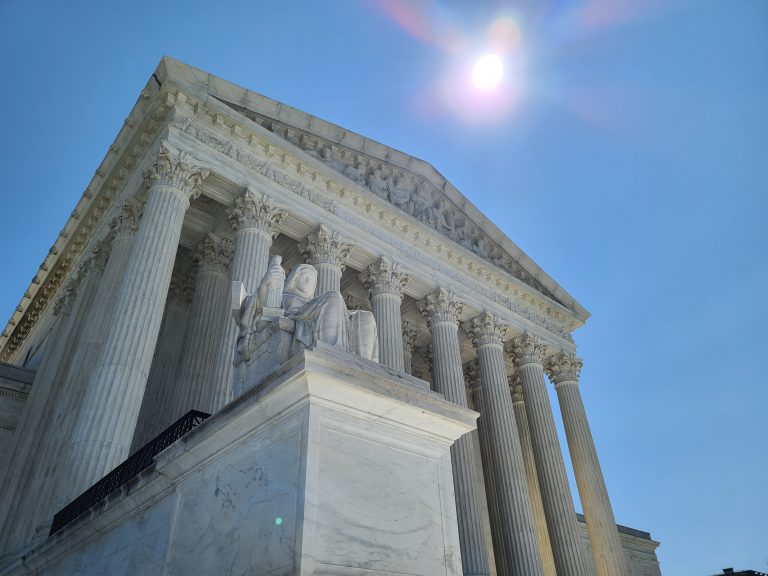Gun-rights advocates cheered justice Clarence Thomas’ landmark opinion in New York State Rifle and Pistol Association v. Bruen, particularly as he dismantled the judicial test lower courts had commonly used to uphold many gun laws. The text and historical tradition standard Thomas offered in its stead was seen by most as a threat to most modern gun restrictions.
But a recent ruling out of a California federal court could temper that expectation, as it reveals how some lower courts might use the Bruen test to uphold even the youngest and most novel restrictions.
On Wednesday, a US District Court judge for the Northern District of California denied a motion for preliminary injunction filed by the National Association for Gun Rights in its suit against San Jose’s recently adopted gun ownership tax and insurance mandate.
“Because California and the City of San Jose have already made it exceedingly difficult to lawfully carry a weapon outside the home, and the Ordinance only affects owners of lawfully owned guns, the Ordinance’s true impact is solely on guns kept in the home by law-abiding citizens,” the group wrote in its January complaint. “It does nothing to deter the scourge of unlawful ownership and use of guns by criminals or to recoup from them compensation for the injuries and damage they cause.”
Judge Beth Labson Freeman, an Obama appointee, punted on the ownership tax but gave the insurance requirement a full analysis under the newly established Bruen standard. She determined mandatory gun insurance likely fit within the nation’s historical tradition of firearms regulation.
“Having defined the conduct at issue as ‘owning or possessing a firearm without firearm liability insurance,’ the Court finds that Plaintiffs are likely to prevail on a finding that this conduct is covered by the plain text of the Second Amendment. And, as Bruen teaches, the Constitution thus ‘presumptively protects that conduct,'” Judge Freeman wrote in her opinion. “However, the Court finds that the mid-19th century surety statutes, cited by the City and discussed at length in Bruen, bear striking analogical resemblances to the Insurance Requirement.”
Surety statutes were 19th-century laws primarily limited to certain northern states such as Massachusetts. They regulated the public carrying of weapons and featured heavily in the arguments surrounding the Bruen decision.
As Judge Freeman notes, they “typically required certain individuals to post bond before carrying weapons in public if there was ‘reasonable cause’ to fear these individuals would cause injury or breach of the peace, with the bond forfeited if the wielder did in fact injure another or breach the peace.”
The ruling links surety laws to the modern insurance mandate by noting that both use the threat of financial consequences to deter harm from gun usage. It also noted that early American states also imposed strict liability for firearm-related accidents, drawing a throughline from that to modern insurance regimes like the one in San Jose.
But while surety statutes existed to regulate public carry of those who presented a specific threat to society, the insurance mandate at issue in San Jose is required merely for the ownership of a firearm by anyone, regardless of whether or not someone intends to carry it or has demonstrated they are a potential threat to others. Judge Freeman did not address that distinction in her ruling.
She noted that the analogy was imperfect but issued a favorable ruling for San Jose.
“Although the Insurance Regulation is not a ‘dead ringer’ for 19th-century surety laws, the other similarities between the two laws would render the Ordinance’ analogous enough to pass constitutional muster,'” she wrote. “The Court finds that the City has presented a sufficiently ‘relevantly similar’ historical regulation to defeat Plaintiffs’ likelihood of success on Bruen’s historical tradition prong.”
The decision highlights how lower courts might use questionable or tenuous historical analogues to uphold modern gun restrictions if they are sufficiently motivated to maintain a gun law.
In Bruen, a case explicitly concerned with the regulation of gun carry, supporters of New York’s 20th-century may-issue gun carry regime used surety laws to argue that the Supreme Court should uphold may-issue permitting as part of the nation’s historical tradition of gun regulation. That argument was unsuccessful. But, in a case concerning the nation’s first-ever mandatory gun insurance law passed just this year, invoking sureties was enough to persuade at least a California judge that such a law could likely pass constitutional muster.
It’s highly unlikely the Supreme Court would agree with Judge Freeman’s analysis, given the superficial connection between surety laws and the insurance requirement. But it serves as a reminder that unless the Supreme Court remains active in superintending the state of Second Amendment jurisprudence, some courts will continue to find ways to uphold gun-control laws even under a new framework of review. They did so after Heller, and they’ll do it again.







2 Responses
Thank you for bringing this excellent analysis on the San Jose gun insurance case. I’ll be sure to include all of this in my News Rodeo today.
It’s definitely a very interesting case study in how liberal-leaning courts might approach the Bruen test. It’s in line with what I expected. Although, I think this is one of the more tenuous examples of finding a historical analogue.